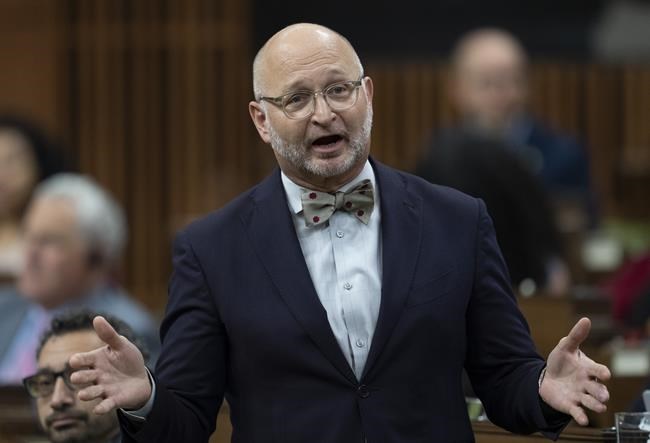OTTAWA — The revelation that Canadian officials have been in frequent talks with the Taliban undercuts Ottawa's argument that humanitarian groups cannot operate in Afghanistan, constitutional lawyers say.
"We think the fact Canadian diplomats have correctly and appropriately been interacting with the Taliban on humanitarian issues shows that the government's interpretation needs to be revisited and withdrawn," said University of Toronto professor Sujit Choudhry.
"Clearly, the Canadian government can figure out how to engage with the Taliban-led government when it chooses to do so," Choudhry's colleague Audrey Macklin said in an email.
"It compels one to ask why the Canadian government insists that there is a legal impediment."
The pair is among four senior lawyers who signed a letter in May to Justice Minister David Lametti, saying humanitarian groups cannot be prosecuted under anti-terrorism laws for working in Afghanistan.
Aid groups told members of Parliament this spring that Canadian officials warned them that buying supplies or paying a driver to deliver food in the country would incur taxes for the Taliban, which is listed as a terrorist entity.
Several other countries found workarounds in their own anti-terror laws by June, when a parliamentary committee reported on the issue.
Yet Lametti said Wednesday that Canada still hasn't sorted out how to deal with the issue.
In May, the four lawyers noted that the Taliban is collecting taxes whether or not Canada recognizes it as the government, and the Criminal Code says taxes don't count as contributions to a terrorist group.
Even if it did, Choudhry said, "the consequence of the government's argument would be that any Afghan national seeking refuge in Canada would be inadmissible, because they paid taxes to this authority."
This week, a media report revealed Canada has been in regular talks with the Taliban regime since shortly after it took over Afghanistan in August 2021.
"While the government was telling us it wouldn't recognize the Taliban as the governing authority of Afghanistan, and therefore wouldn't deal with it, in fact it was doing so," Choudhry said, arguing this "blows apart" Ottawa's logic.
"If the government is intent on maintaining this legally incorrect, we would even say, absurd interpretation of Canadian law, it needs to amend Canadian law immediately to establish a carve-out or exception for humanitarian organizations."
Lametti said Thursday that the Taliban is indeed the government, despite Ottawa's refusal to recognize it as such.
"The Taliban is the government, as much as we disagree with virtually all of their policies," he said.
Lametti had no comment on why Ottawa can liaise with the Taliban while barring humanitarian groups from operating in Afghanistan.
"The aid group question is a complex one," he said. "We do have to find a way to defend people."
In recent weeks, Lametti, Foreign Affairs Minister Mélanie Joly, International Development Minister Harjit Sajjan and the office of Public Safety Minister Marco Mendicino have all said their colleagues are working on the matter.
Conservative foreign affairs critic Michael Chong said that means Prime Minister Justin Trudeau is at fault for letting this linger.
"I chalk it up to the fact that the government simply doesn’t care," the Ontario MP said in an interview.
"It has just abandoned these individuals."
Chong said the aid issue amounts to "a stain on this country's honour" when combined with the botched airlift of interpreters who helped Canadian forces.
"Afghanistan is the world's largest humanitarian crisis right now; millions of Afghans are facing starvation and hunger this winter."
NDP critic Heather McPherson argues it's unacceptable that Ottawa has no plan more than a year since the Taliban took control.
"The Liberal inaction is creating avoidable risk by blocking aid to Afghans who are facing a hunger crisis and who are trying to escape from the Taliban," she wrote. "They don’t have the luxury of time."
This report by The Canadian Press was first published Oct. 6, 2022.
— With files from Mia Rabson
Dylan Robertson, The Canadian Press



